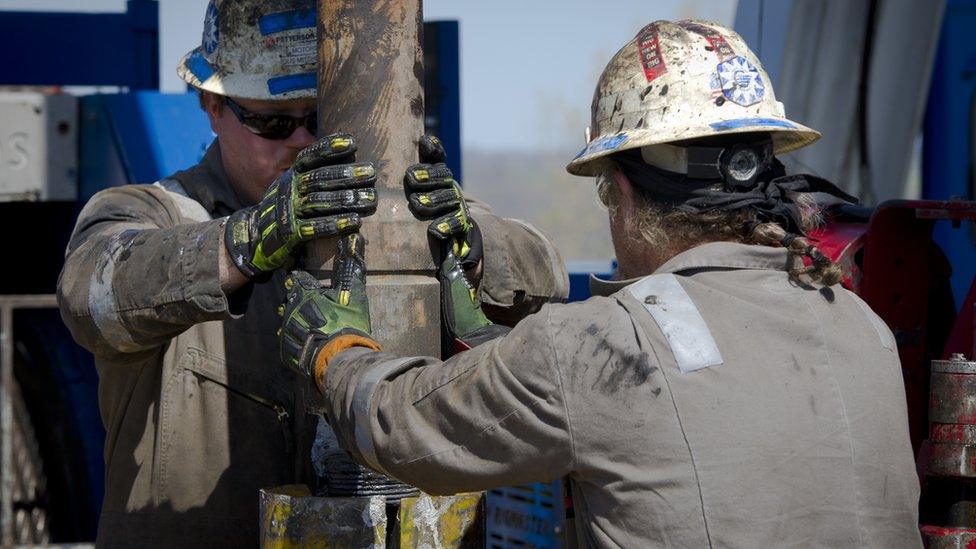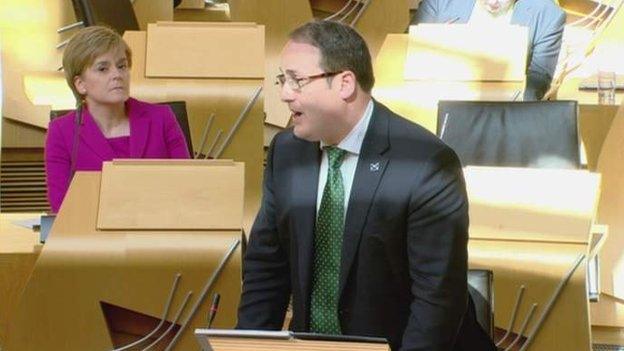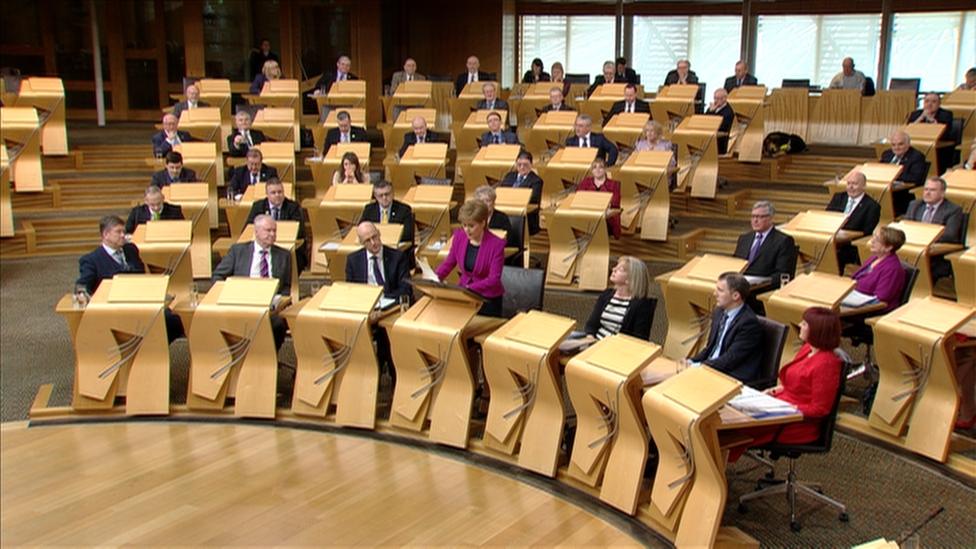Fracking: Does the vote matter more than the debate?
- Published

It is frequently the case in parliament that the vote matters less than the substance of the debate. Such a phenomenon is, indeed, formalised at Westminster where debates are held on the question of the adjournment of the House.
Nobody, except the insomniac or the over-eager, would wish to forestall the adjournment unnecessarily when it has reached its natural point. It is simply a device: a chance to consider constituency or broader issues. The debate counts. Not the vote.
But sometimes the reverse is true. Such was the case at Holyrood today. Parliament was debating a relatively anodyne Scottish government motion - sorry, a vital and thorough analysis of the current state of the environment and resolute ministerial determination to protect it.
In stepped Labour and the Greens with two amendments which, in their various ways, demanded a complete ban on fracking or unconventional exploration and drilling for gas.
Controversial topic
In vain did the Energy Minister Paul Wheelhouse chide them for turning the wider debate into a "sideshow".
In vain - that's twice - did Mr Wheelhouse say that the Scottish government's position on fracking was "clear, unequivocal and consistent." That drew little more than a quiet, throaty chuckle from some members on the opposition benches.
To be fair, Mr Wheelhouse performed well in an exceptionally tricky position. He faced a dilemma featuring three key facets.
One, ministers do not want to rule immediately on fracking. Two, the SNP is in minority at Holyrood. Three, the SNP do not want to vote with the Tories, at least on such a controversial and divisive topic.

"Paul Wheelhouse performed well in an exceptionally tricky position"
To consider each in turn. There are scientific studies underway into the safety or otherwise of fracking. Those should report later this year, with final evaluation perhaps in spring next year.
Why delay? Two reasons. One, ministers genuinely feel constrained to examine a plan which advocates say could be of substantial economic benefit to Scotland. That applied perhaps particularly to the erstwhile Energy Minister Fergus Ewing, now in charge of the rural economy.
Secondly, ministers want to head off any possibility of a legal challenge in the shape of a demand for a judicial review from those who favour fracking, perhaps most notably the owners and operators of the petro-chemical complex at Grangemouth.
In which regard, full and thorough scrutiny of the scientific evidence might forestall such a challenge, provided procedure is properly followed.
Point two, that minority. Tonight's vote confirms, if confirmation were needed, that the SNP can no longer get its way at Holyrood. At least, not without collaboration.
'Freeze out'
Which brings us to point three. The SNP could have collaborated. They could have voted with the Tories who are pro-fracking and, consequently, opposed to the Labour and Green amendments.
The SNP chose not to do so. Thus confirming - for now, at least - the approach signalled by Nicola Sturgeon that she would prefer to freeze the Tories out, while pursuing a "progressive" alliance, where possible.
Will fracking be banned in Scotland? Yes, I think it will. The politics points that way. Ms Sturgeon says she is "deeply sceptical" about fracking. But such a decision would only be taken after ministers have the shield of scientific advice - should, indeed, it point in that direction.
And the impact of tonight's vote? Firstly, it will form part of the Scottish government's wider consultation. Secondly, it measurably increases the pressure for a ban. For the opposition parties, job done.
- Published26 May 2016
